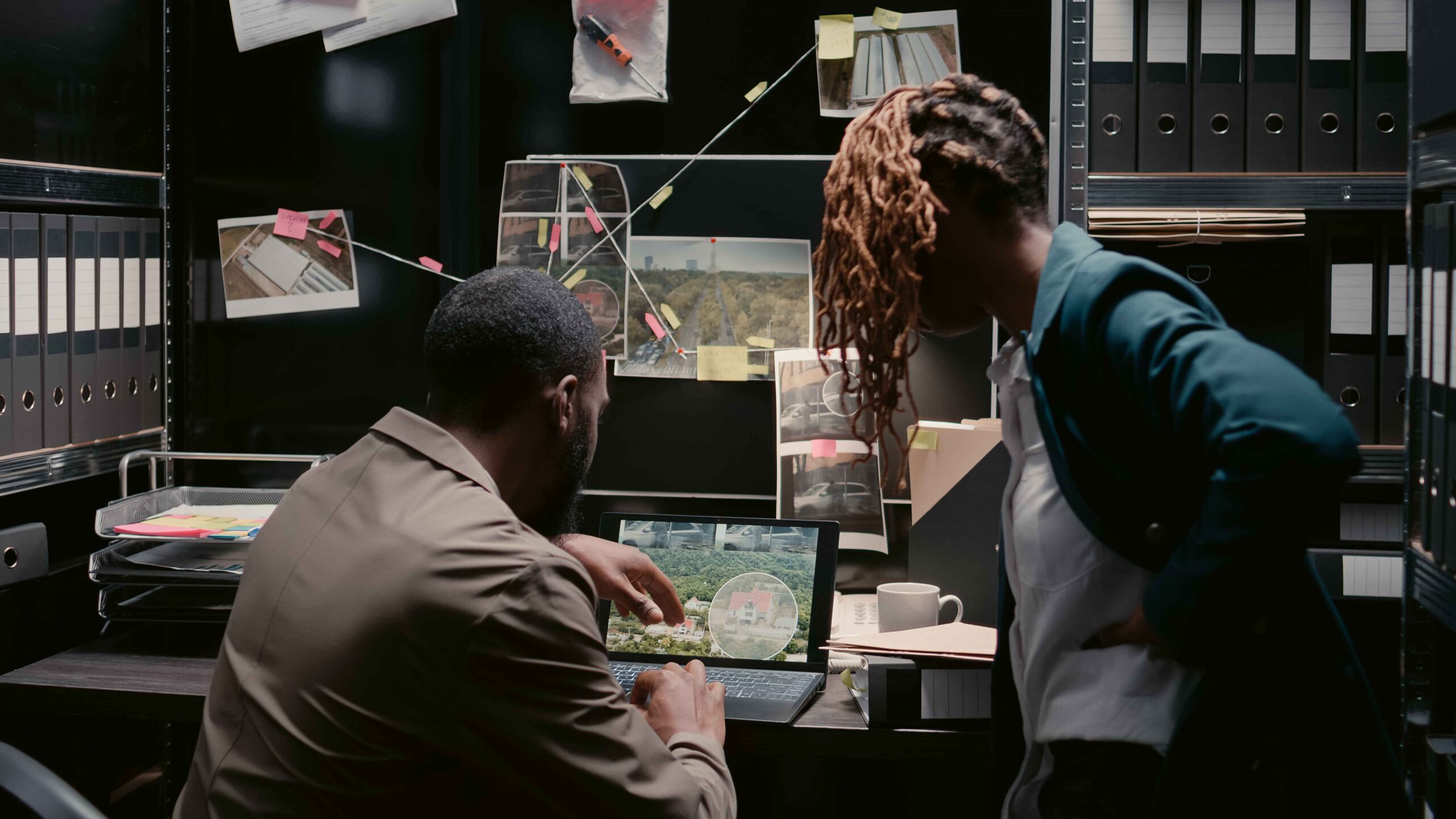Hiring a private investigator (PI) can be a crucial step in uncovering important information for personal, legal, or business matters. Whether you’re dealing with a suspected infidelity, conducting a background check, or seeking evidence for a legal case, understanding how to hire a private investigator effectively ensures you receive reliable and professional assistance. This guide provides expert tips to help you navigate the hiring process successfully.
Why You Might Need a Private Investigator
Private investigators offer specialized skills and resources that can be invaluable in various situations, such as:
- Personal Investigations: Uncovering information about a spouse’s fidelity, locating missing persons, or verifying someone’s background.
- Legal Support: Gathering evidence for court cases, conducting surveillance, or locating witnesses.
- Business Investigations: Performing background checks on employees, investigating fraud, or conducting due diligence for mergers and acquisitions.

Understanding your specific needs is the first step in hiring the right PI.
Step-by-Step Guide How to Hire a Private Investigator
1. Determine Your Needs
Before beginning your search, clearly define why you need a private investigator. This clarity will help you find a professional with the right expertise and experience.
2. Research Potential Private Investigators
Start by compiling a list of reputable private investigators in your area. You can find PIs through:
- Online Directories: Websites like the National Association of Professional Process Servers or local business directories.
- Referrals: Recommendations from lawyers, friends, or family members who have previously hired a PI.
- Professional Associations: Membership in organizations such as the National Council of Investigation & Security Services.
3. Check Credentials and Licensing
Ensure the private investigator is licensed to operate in your state. Licensing requirements vary, so verify their credentials with your state’s licensing board. Additionally, consider:
- Certifications: Look for certifications from recognized industry bodies.
- Experience: Assess their years of experience and areas of specialization.

4. Review Experience and Specialization
Choose a PI with experience relevant to your specific needs. For example:
- Infidelity Investigations: Look for PIs specializing in marital investigations.
- Corporate Investigations: Select PIs with a background in business and fraud investigations.
- Legal Support: Ensure the PI has experience working with legal professionals and understanding court procedures.
5. Discuss Fees and Costs
Understanding the cost structure upfront prevents surprises later. Private investigators may charge:
- Hourly Rates: Typically ranging from $50 to $200 per hour, depending on the complexity of the case.
- Flat Fees: For specific services like background checks or locating individuals.
- Retainers: An upfront payment to cover initial expenses, which will be deducted from the final bill.
Request a detailed estimate and discuss any additional expenses that may arise during the investigation.
6. Interview Potential Private Investigators
Conduct interviews to gauge the PI’s professionalism and compatibility with your case. Ask questions such as:
- What is your experience with cases like mine?
- How do you handle confidentiality and data security?
- Can you provide references from previous clients?
- What is your approach to gathering evidence?
7. Make a Decision
After evaluating potential candidates, choose the private investigator who best meets your needs, demonstrates professionalism, and offers transparent pricing.
Checklist of Qualifications and Credentials
- Licensing: Verify state-specific licensing requirements.
- Experience: Relevant experience in your specific type of investigation.
- References: Positive testimonials from previous clients.
- Professional Associations: Membership in reputable PI organizations.
- Insurance: Liability insurance to cover any potential mishaps during the investigation.
Understanding Licensing and Certifications
Private investigators must adhere to state laws and regulations. Licensing typically requires:
- Background Checks: Clean criminal record.
- Training: Completion of required training programs.
- Examinations: Passing state-administered exams.
- Continuing Education: Ongoing training to stay updated with industry standards.
Certifications from professional bodies, such as the Certified Professional Investigator (CPI), can further validate a PI’s expertise and commitment to ethical practices.
Cost Breakdown
Understanding the costs involved in hiring a private investigator helps you budget effectively:
| Service | Estimated Cost |
|---|---|
| Hourly Rate | $50 – $200 per hour |
| Flat Fee Services | $300 – $1,500 |
| Retainer Fees | $1,000 – $5,000 upfront |
| Expenses | Travel, lodging, equipment rental |
| Specialized Services | Varies based on complexity |
Always request a detailed quote and inquire about any potential additional costs before hiring a PI.
Frequently Asked Questions
How long does an investigation take?
The duration varies based on the case’s complexity. Simple background checks may take a few days, while more intricate investigations can take several weeks or months.
Is the information gathered by a private investigator legally admissible?
Private investigators adhere to legal guidelines to ensure the evidence they collect is admissible in court. However, it’s advisable to consult with a legal professional regarding specific cases.
How do private investigators maintain confidentiality?
Reputable PIs implement strict confidentiality protocols, including secure data handling and non-disclosure agreements, to protect clients’ privacy.
Related Post: Find a Genuine Cyber Hacker
Real-Life Examples
Case Study 1: Infidelity Investigation
A client suspected their spouse of infidelity hired a private investigator to gather evidence. The PI conducted surveillance, documented interactions, and provided comprehensive reports that supported the client’s legal proceedings.
Case Study 2: Corporate Fraud Investigation
A business owner suspected employee fraud and engaged a private investigator. The PI analyzed financial records, conducted interviews, and uncovered fraudulent activities, enabling the business to take corrective measures.
Legal and Ethical Considerations
Private investigators must operate within the bounds of the law, respecting privacy rights and avoiding unlawful surveillance or data collection. Ethical practices ensure the integrity of the investigation and the validity of the findings.
Importance of Confidentiality
Maintaining confidentiality is crucial in investigations to protect the client’s privacy and the PI’s reputation. Ensure your investigator follows strict confidentiality protocols to safeguard sensitive information.
Private Investigators in Different Scenarios
- Personal Investigations: Addressing family matters, such as custody disputes or locating relatives.
- Legal Investigations: Supporting attorneys with evidence collection and witness location.
- Corporate Investigations: Conducting due diligence, investigating internal fraud, or ensuring compliance with regulations.
Common Misconceptions About Private Investigators
- Intrusive Surveillance: While PIs conduct surveillance, they do so legally and ethically, avoiding harassment or illegal intrusion.
- High Costs Only: While some PIs may charge higher fees, many offer a range of services to fit different budgets.
- Quick Fixes: Effective investigations take time and thoroughness to ensure accurate and reliable results.
Conclusion
Hiring a private investigator involves careful consideration of your needs, thorough research, and clear communication. By following these expert tips on how to hire a private investigator, you can find a professional who provides reliable, ethical, and effective services tailored to your specific situation.
Ready to take the next step? Check our comprehensive Private Investigator Hiring Checklist to ensure you cover all essential aspects. If you need expert assistance, contact our recommended PI services today. Subscribe to our newsletter for more tips on hiring professionals and safeguarding your interests.

